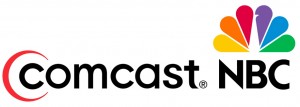Cable’s Fate as FCC Pushes for Internet-TV Access: Impact of Comcast/NBC
David Lazarus of the LA Times writes about the FCC’s role in shaping broadband enabled television (remember that computers are in 74% of homes, but televisions in 99%). In the wake of Comcast’s impending takeover of NBC Unviersal, Lazarus writes:
If federal regulators have their way, the next big thing on the tech horizon will be a brave new world of Internet-ready, work-with-any-network set-top boxes, offering consumers unprecedented multimedia options through their TVs, not just their computers. And if this plays out as the Federal Communications Commission envisions, the world as cable companies know it will radically change, making the potential synergies of the Comcast-NBC deal all but obsolete.
Mind you, I’m no fan of bloated “synergy” deals like AOL Time Warner, but that “all but obsolete” statement sounded to me like an incredible generalization. Given Comcast’s legitimate concerns about its sustainability as an intermediary between content and customers, it seems like Comcast’s ownership of a network would make it far from obsolete… regardless of an FCC move.
Most of us who watch this space are more progressive about our technology, but I won’t soon forget a conversation I had with a Verizon employee who I asked to install a card into my TiVo. He was struggling with this process, and explained to me that almost all Verizon employees use Verizon’s horrible box. It’s partially because it’s easier and less expensive, but I’m willing to bet few know they have other options.
So if the cable-subscribing masses passively use the box Comcast provides, then Comcast can effectively advantage NBC content… giving it the premier stations and placement. Consider when you’re in a hotel, that before you can channel surf you’re forced invited to watch one of the $15 movie rentals (a price at which you could buy a DVD anywhere else). An analogy would be if YouTube owned two-dozen partner channels and gave them top billing on YouTube’s homepage and “related videos.”
Done right, vertical integration produces some advantages to the company and lower costs to the consumer (by eliminating the middle-man and reducing overlap between players in a supply chain)… think Walmart. Done wrong, it’s a price-gauging monopoly that abuses its power by, for instance, requiring a Comcast subscription to access NBC content (unlikely). The NY Times covers this scenario in an editorial. Indeed many attempts at synergy result in customers getting screwed and a remarkably unfocused company. I worked for a web-strategy group acquired by Qwest (the Denver-based telcom) and saw no advantage to a telcom owning a web-services group.
Back to the consumer and what he/she experiences… if Comcast installs a device that makes television-viewing and web-surfing easy, then it has a non-trivial advantage. It can run ads around television web-viewing so it capitalizes wherever the consumer is going (free or paid). It can make Hulu a pain in the ass to watch. It also has the ability to prompt viewers to purchase on-demand NBC content or provide upsell offerings as subscriptions (with the click of a mouse).
Conclusion: Comcast/NBC strikes me as far more powerful than Vertizon or a stand-alone ISP/cable company. If you own the technology and content then you can profit from ads or upselling content. It’s kinda like the kid in the neighborhood that owns the only football. He’s probably going to get invited to each game, and the game is temporarily over if he decides to go home because he’s mad. Of course if he abuses this role, at some point the other kids will purchase their own football and tell that kid to piss off forever.



TVs in 99% and computers only in 74% of homes?
I didn’t realize that I was in such a minority with three computers (laptop, desktop, netbook) and no TV.
Comcast can suck my ass.
Oh look! The cheese is back in the banner!